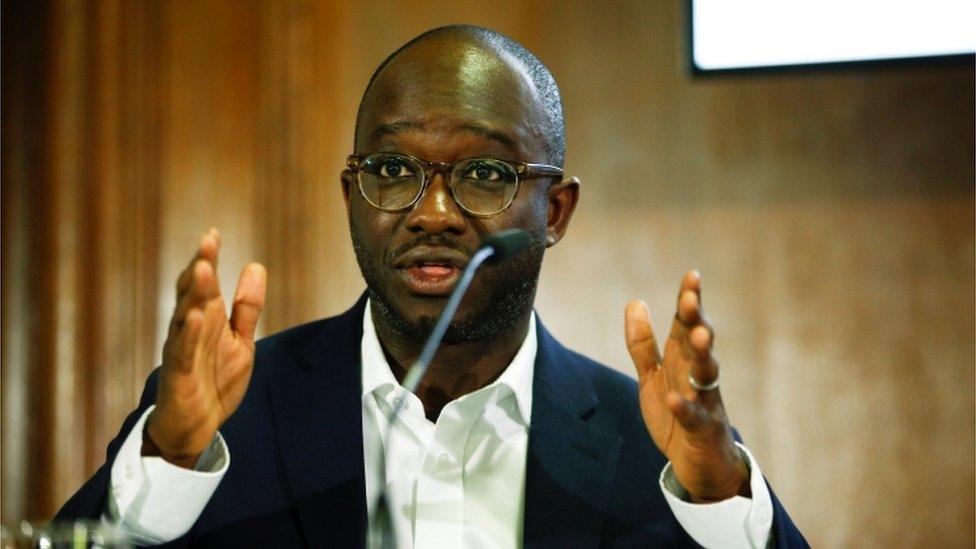Brokenshire: Tory leadership candidates should drop out
- Published
- comments
'No embarrassment' in dropping out, says minister
Some candidates in the Conservative leadership contest should consider pulling out, Housing Minister James Brokenshire has said.
The communities secretary, who is not running himself, says the party needs to find a new leader fast.
Theresa May steps down on Friday and 13 Conservative MPs so far have put themselves forward to succeed her.
Former Chancellor Ken Clarke called the contest a "shambles" and said there were too many people running.
He told BBC Radio 4's Today programme that the race was "in danger of becoming a rather tragic farce unless some order is brought into it".
Currently, MPs only require the backing of two parliamentary colleagues to stand in the leadership race.
Senior Conservatives will meet on Monday afternoon to discuss whether to change the rules so potential candidates need more supporters to begin their bid.
A final decision will be made by the executive of the backbench 1922 Committee on Tuesday.
After nominations close, all 313 Conservative MPs will vote for their preferred candidate in a series of polls that will whittle down the contenders one by one.
Some MPs are keen to reduce the number of hopefuls swiftly, since the wider Tory membership of 124,000 will only vote on two candidates.
Mr Brokenshire said those "unlikely to get over the first fence" should drop out, insisting there was "no embarrassment in standing down at this point".
He added: "We don't have the luxury of time and we need to get on with it."
Nigel Evans says there is a need to get the number of contenders down
Nigel Evans, joint secretary of the 1922 Committee, told BBC's Politics Live he favoured a proposer and seconder, plus 10 MPs, to nominate a leadership candidate.
"That may get the number down to a manageable proportion," he said.
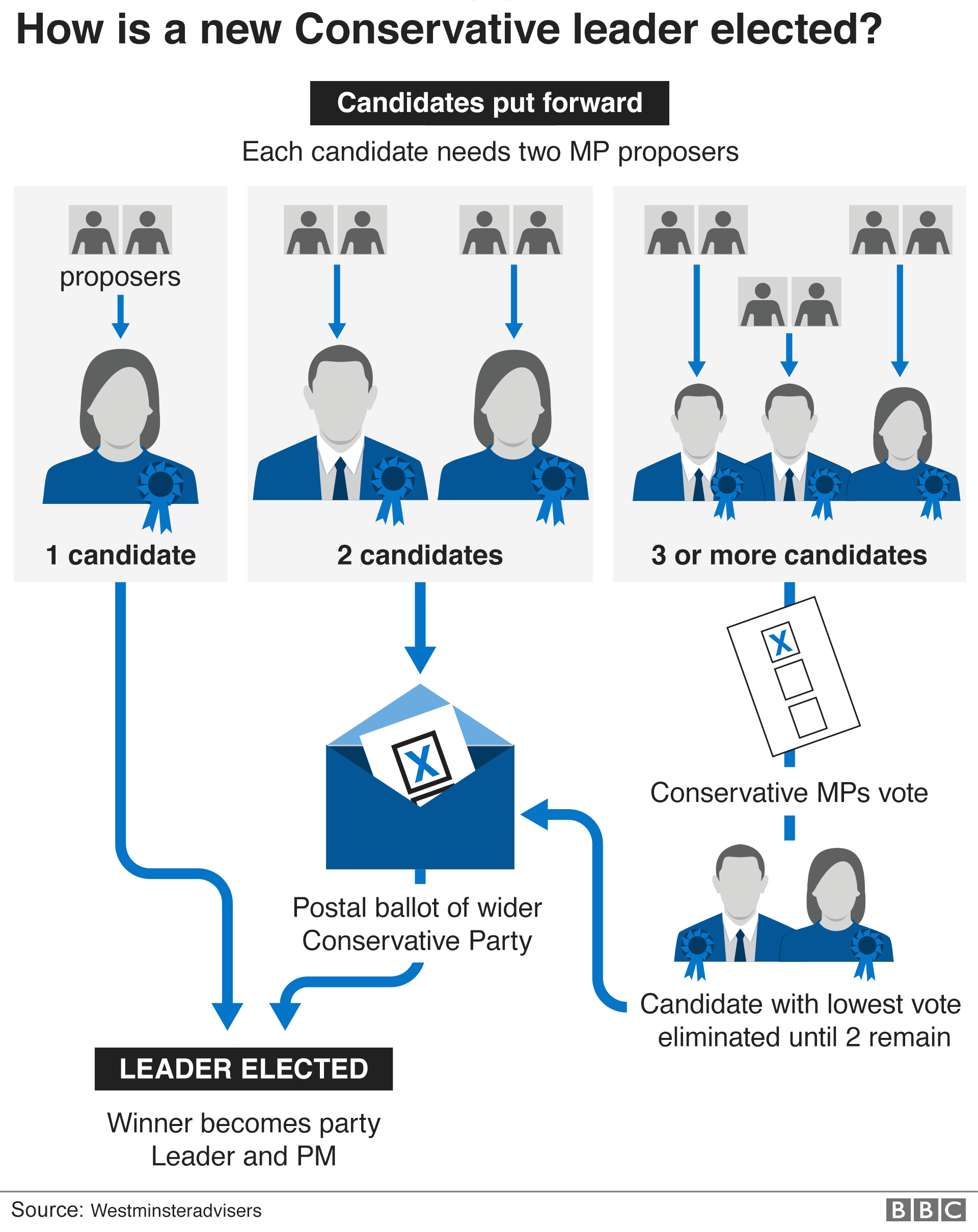

Tory MP Phillip Lee called the legitimacy of the contest into question, claiming there had been a "significant influx" in new members over the past year.
The pro-Remain backbencher, who lost a vote of no confidence by his local Conservative Association, told Today that some had been former members of other parties, including the far-right BNP.
Meanwhile, candidates are continuing their pitches to become the next Tory leader - and prime minister - especially when it comes to their plans for Brexit.
Foreign Secretary Jeremy Hunt told Today he still wanted to leave the EU with a deal, but would be prepared to exit without one "as a last resort [and] with a heavy heart".
Mr Hunt said he believed a new deal could be done with the EU before 31 October - the deadline for Brexit.
The EU has consistently said it is not willing to re-open the current withdrawal agreement negotiated between the bloc and Mrs May, despite it being voted down by MPs three times.

Who will replace Theresa May?
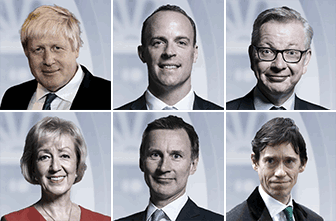
The winner of the contest to lead the Conservative Party will become the next prime minister.

Former Foreign Secretary Boris Johnson has launched a campaign video on Twitter, external, showing him discussing issues with voters on the doorstep - such as leaving the EU at the end of October with or without a deal, and bringing back police stop-and-search powers.
In his weekly Telegraph column,, external Mr Johnson also outlined a plan to spend at least £5,000 on every secondary school pupil, promising to correct the "yawning funding gap" between schools in London and the rest of the country.
Esther McVey says she will "ensure" the UK leaves on 31 October, with or without a deal
Former Work and Pensions Secretary Esther McVey described how she would take money from the international aid budget to put into public services.
She told the BBC's Victoria Derbyshire that cuts to services - some of which she oversaw as a minister - were needed after the 2010 general election for the country "to get back on its feet", but it was now time for a "nimble leader who can change things when they need to be changed".
As a result, Ms McVey said she would put an additional £4bn into schools and £3bn into police.
Over the weekend, other candidates made more announcements for their campaigns, including:
Former Universities Minister Sam Gyimah became the 13th MP to enter the contest, backing a further referendum on Brexit and saying he wanted to Remain
Former Commons Leader Andrea Leadsom said she would seek a "managed exit" from the EU, introducing legislation to guarantee citizens' rights, ramp up preparations for all Brexit scenarios and explore alternatives to the Irish border backstop plan
Home Secretary Sajid Javid made a pitch for a "modern digitised border" between Northern Ireland and the Republic of Ireland, which he said would "unlock a Brexit deal"
Health Secretary Matt Hancock outlined his "Brexit Delivery Plan", saying he would seek a time limit to the Irish backstop
The backstop is the policy within the withdrawal agreement which aims to prevent a hard border returning to the island of Ireland in case of a no-deal Brexit.
The EU has said it is a key part of the withdrawal agreement, which it is not willing to reconsider or subject to a time limit.
- Published2 June 2019
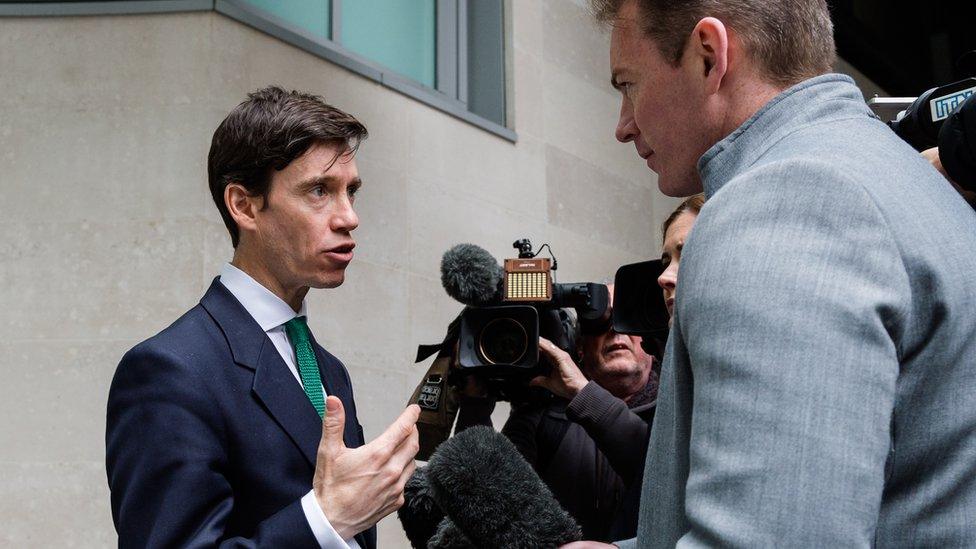
- Published1 June 2019
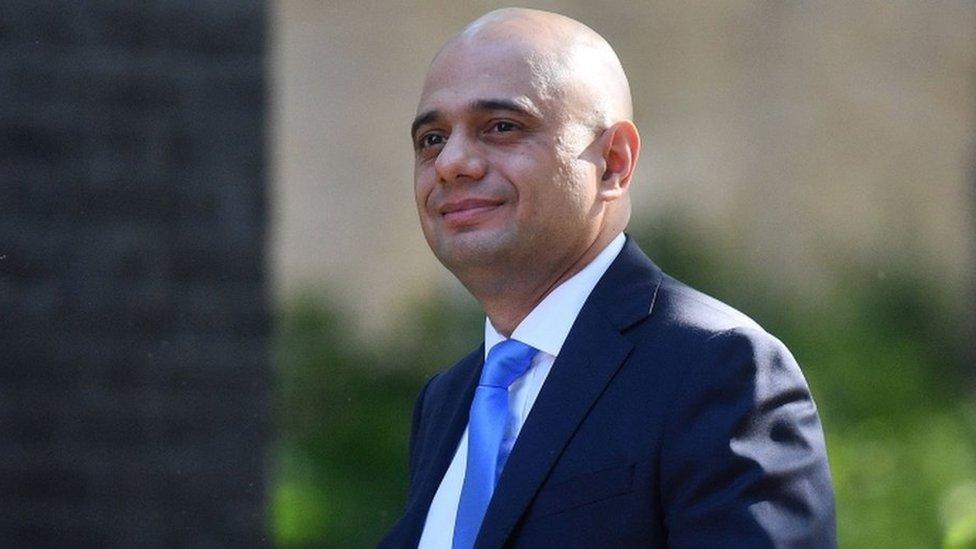
- Published2 June 2019
